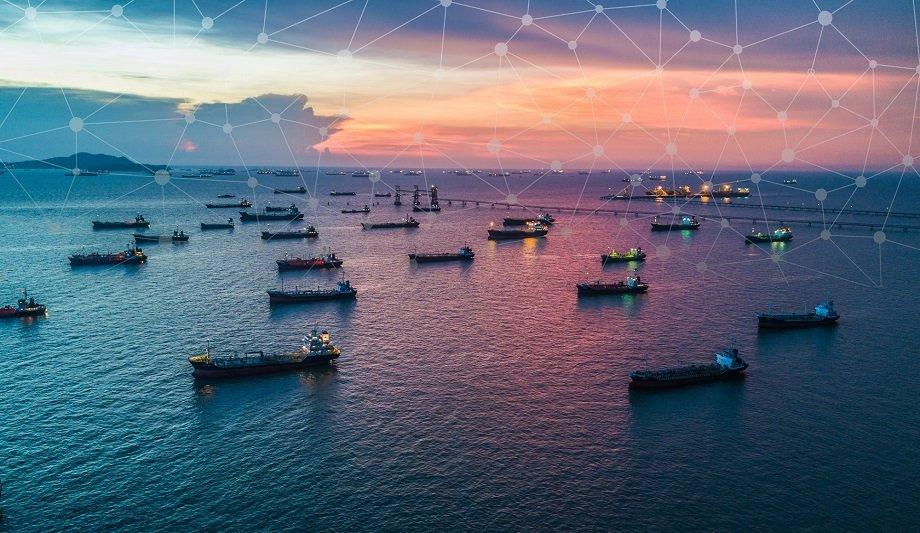DNV’s independent cloud platform, Veracity expands its integrated partner network and grows its reach to 35,000 vessels, helping shipping companies and charterers meet their emissions data verification and reporting needs.
With major regulatory shifts on the horizon and 2024 inching closer for the sector’s inclusion into the EU Emissions Trading System (ETS), decarbonisation and carbon control have become central focus points for shipowners and operators of late.
Automated, and real-time access
Veracity’s expanding network of integrated partners is proving pivotal for more and more customers. It enables easy, automated, and real-time access to verified emissions data for seamless and secure reporting across the value chain.
This is specifically tuned for supporting new emissions clauses in the contracts requiring timely and trusted emissions data.
Need for trusted data source
There’s no question the impact of the EU ETS will be felt across the entire value chain"
Mikkel Skou, Executive Director at Veracity said, “There’s no question the impact of the EU ETS will be felt across the entire value chain. Carbon tax is factored into freight rates and commercial agreements, but while the cost will be shared across the maritime value chain the initial pressure and responsibility lies heavy on ship owners and managers."
Mikkel Skou adds, "This has necessitated the need for constant access, control, and confidence in emissions and operational vessel data. Simply put, a trusted source of data that can help the industry players collaborate on emissions reduction measures.”
StormGeo partnership
One of the first partners to integrate with the Veracity platform, weather intelligence, and advanced analytics provider to the shipping industry, StormGeo, shares the benefits that the network unlocks for joint customers and the industry at large.
Petter Andersen, Senior Vice President, of Shipping Digital at StormGeo said, “The integration between StormGeo and Veracity is proof that collaboration is a means to an end to create true value for the end user."
Ensuring data quality
Petter Andersen adds, "United in our mission to ensure the quality of data, together we help the end-user structure their data flow, ensure data quality, and automatically share data with DNV for verification so they do not need to do it themselves."
He continues, "The end-user saves considerable time on the process and improves the quality of their data with this data pipeline.”
Network of integrated partners
In Q2 alone, Veracity onboarded seven new partners to the programme
One year on, Veracity has grown a powerful network of integrated partners including Coach Solutions, Wärtsilä, Navtor, Vessel Performance Solutions, ZeroNorth, Dynamarine, and 90POE to name a few.
In Q2 alone, Veracity onboarded seven new partners to the programme, including pioneering maritime technology provider Yara Marine.
Streamline operational data
Mikael Laurin, Head of Vessel Optimisation, Yara Marine Technologies said, “Integration with Veracity by DNV will help our customers streamline their operational data processes and simplify compliance and continuous data verification."
Mikael Laurin adds, "We are proud to work with DNV and make Veracity available for all our customers using our reporting tool in Fleet Analytics™. This ensures that they have future-proof and cost-effective solutions."
Simplifying workload
As the first joint customer to use the integrated system between Veracity and Yara Marine, Tanker operator Stenersen was quick to recognise the integration as a key ingredient to reaching net-zero maritime emissions.
Christopher Stenersen, Environmental Advisor at Rederiet Stenersen AS, commented, “Through our longstanding relationship with Yara Marine Technologies, we know that they are committed to supporting customers' sustainability and decarbonisation journeys. We already use Yara Marine’s Fleet Analytics™ for our voyage and MRV reporting, and the new integration with Veracity will further simplify our workload and streamline our data analysis process.”
The Network Effect
Connecting and decarbonising the industry through trusted data
As the regulatory arena intensifies, data integrations, such as these, will be more instrumental
As the regulatory arena intensifies, data integrations, such as these, will be more instrumental than ever to customers, particularly towards CII reporting and EU ETS compliance that will become mandatory as of 1 January 2024.
Mikkel Skou, Executive Director at Veracity said, “Our partner programme is integral to helping shipowners and managers to effectively operationalise the process of emissions reporting."
Real-time, daily verified data
Mikkel Skou adds, "I hope to see more data providers and partners join us in helping customers gain seamless access to real-time, daily verified data in a secure environment. With this single source of truth, we are not only heeding the call for trust, traceability, and transparency but injecting confidence in the commercial and sustainable decision-making of all stakeholders.”
Veracity Integrated Partner (VIP) programme
The Veracity Integrated Partner (VIP) programme was launched in 2022 to help shipowners add ease and efficiency to their emissions reporting process. As part of the programme, established data providers connect with the Veracity platform through a secure, digital pipeline.
This allows a continuous feed of consented and real-time data from the customer’s vessels into Veracity’s Operational Vessel Data (OVD) standard and DNV’s extensive suite of verification services.
Programme benefits
Full benefits to the customer include:
- Automated and streamlined data flows.
- Reduction in manual data input and crew effort.
- Instant access to DNV’s integrated verification services, hereunder verified Carbon Intensity Indicator (CII) and ETS data and reports.
- Easy and efficient data transfers; e.g., ready-to-submit Monitoring Reporting and Verification (MRV) and Data Collection System (DCS) verification.
- Enabling data quality improvement, through increased data ingest frequency, validation algorithms, and feedback loops.
- A single source for trusted data to share with stakeholders.
